Apple on Thursday addressed mounting criticism over the revelation that it slows down iPhones with aging batteries to prevent performance issues. In addition to apologizing, the company has also lowered the price of out-of-warranty battery replacements to $29, and will issue a software update in early 2018 to let users find out more information about the health of their device's battery.
The new $29 iPhone battery replacement is a reduction of $50 from the previous cost of $79. It will be available for anyone with an iPhone 6 or later whose battery needs to be replaced, starting in late January and available worldwide through December 2018.
The company will also issue an iOS software update with "new features," coming in early 2018. This will let users see if the condition of their phone's battery is affecting performance.
"Our goal has always been to create products that our customers love, and making iPhones last as long as possible is an important part of that."
"We know that some of you feel Apple has let you down. We apologize," the company wrote in an open letter published to its website. "There's been a lot of misunderstanding about this issue, so we would like to clarify and let you know about some changes we're making."
It went on to clarify that it has never, and would never, do anything to intentionally shorten the lifespan of any Apple product. The company also denied degrading user experience to encourage upgrades.
"Our goal has always been to create products that our customers love, and making iPhones last as long as possible is an important part of that," they said.
The letter goes on to explain how batteries age and degrade in performance over time, and what the software changes do to address these problems. It states that recent customer feedback over the controversy compelled it to make changes, including the upcoming software update and reduction in battery replacement price.
Aging batteries have reduced capacities, and can cause random shutdowns of devices when they are subjected to spikes in power usage. Apple has addressed this by reducing peak performance of processors in older phones, which can make them run slower, but also keeps them operational for a longer period of time.
Despite the fact that throttling keeps devices operational for longer, Apple's own admission has helped fuel a popular conspiracy theory that the company intentionally slows down older iPhones to encourage customers to buy a new device. Tests have shown that older devices outfitted with a new battery, available for $29 starting in late January, will see their performance return to normal levels.
However, Apple's admission and continued belief in the conspiracy theory have helped to spur a number of lawsuits from around the world. Some critics have contended that even if the throttling is in the best interest of users and their devices, Apple should still have been more transparent about the fact that software updates could result in slower phones.
Seeing an opportunity from Apple's public relations crisis, some competitors this week issued statements to say that they do not throttle the processing power of older devices.
Apple, too, clearly saw the damage that was being done with the story continuing to make the rounds in the news and on social media. It remains to be seen whether Thursday's response and the upcoming changes will put the controversy to bed.
Apple's full letter to customers is included below:
December 28, 2017A Message to Our Customers about iPhone Batteries and Performance
We've been hearing feedback from our customers about the way we handle performance for iPhones with older batteries and how we have communicated that process. We know that some of you feel Apple has let you down. We apologize. There's been a lot of misunderstanding about this issue, so we would like to clarify and let you know about some changes we're making.
First and foremost, we have never — and would never — do anything to intentionally shorten the life of any Apple product, or degrade the user experience to drive customer upgrades. Our goal has always been to create products that our customers love, and making iPhones last as long as possible is an important part of that.
How batteries age
All rechargeable batteries are consumable components that become less effective as they chemically age and their ability to hold a charge diminishes. Time and the number of times a battery has been charged are not the only factors in this chemical aging process.
Device use also affects the performance of a battery over its lifespan. For example, leaving or charging a battery in a hot environment can cause a battery to age faster. These are characteristics of battery chemistry, common to lithium-ion batteries across the industry.
A chemically aged battery also becomes less capable of delivering peak energy loads, especially in a low state of charge, which may result in a device unexpectedly shutting itself down in some situations.
To help customers learn more about iPhone's rechargeable battery and the factors affecting its performance, we've posted a new support article, iPhone Battery and Performance.
It should go without saying that we think sudden, unexpected shutdowns are unacceptable. We don't want any of our users to lose a call, miss taking a picture or have any other part of their iPhone experience interrupted if we can avoid it.
Preventing unexpected shutdowns
About a year ago in iOS 10.2.1, we delivered a software update that improves power management during peak workloads to avoid unexpected shutdowns on iPhone 6, iPhone 6 Plus, iPhone 6s, iPhone 6s Plus, and iPhone SE. With the update, iOS dynamically manages the maximum performance of some system components when needed to prevent a shutdown. While these changes may go unnoticed, in some cases users may experience longer launch times for apps and other reductions in performance.
Customer response to iOS 10.2.1 was positive, as it successfully reduced the occurrence of unexpected shutdowns. We recently extended the same support for iPhone 7 and iPhone 7 Plus in iOS 11.2.
Of course, when a chemically aged battery is replaced with a new one, iPhone performance returns to normal when operated in standard conditions.
Recent user feedback
Over the course of this fall, we began to receive feedback from some users who were seeing slower performance in certain situations. Based on our experience, we initially thought this was due to a combination of two factors: a normal, temporary performance impact when upgrading the operating system as iPhone installs new software and updates apps, and minor bugs in the initial release which have since been fixed.
We now believe that another contributor to these user experiences is the continued chemical aging of the batteries in older iPhone 6 and iPhone 6s devices, many of which are still running on their original batteries.
Addressing customer concerns
We've always wanted our customers to be able to use their iPhones as long as possible. We're proud that Apple products are known for their durability, and for holding their value longer than our competitors' devices.
To address our customers' concerns, to recognize their loyalty and to regain the trust of anyone who may have doubted Apple's intentions, we've decided to take the following steps:
- Apple is reducing the price of an out-of-warranty iPhone battery replacement by $50 — from $79 to $29 — for anyone with an iPhone 6 or later whose battery needs to be replaced, starting in late January and available worldwide through December 2018. Details will be provided soon on apple.com.
- Early in 2018, we will issue an iOS software update with new features that give users more visibility into the health of their iPhone's battery, so they can see for themselves if its condition is affecting performance.
- As always, our team is working on ways to make the user experience even better, including improving how we manage performance and avoid unexpected shutdowns as batteries age.
At Apple, our customers' trust means everything to us. We will never stop working to earn and maintain it. We are able to do the work we love only because of your faith and support — and we will never forget that or take it for granted.
 Neil Hughes
Neil Hughes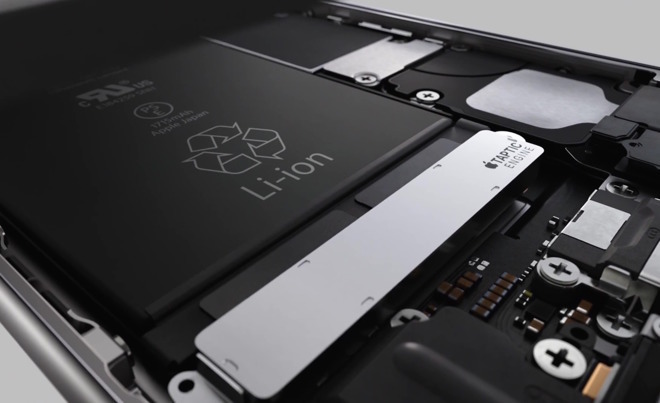
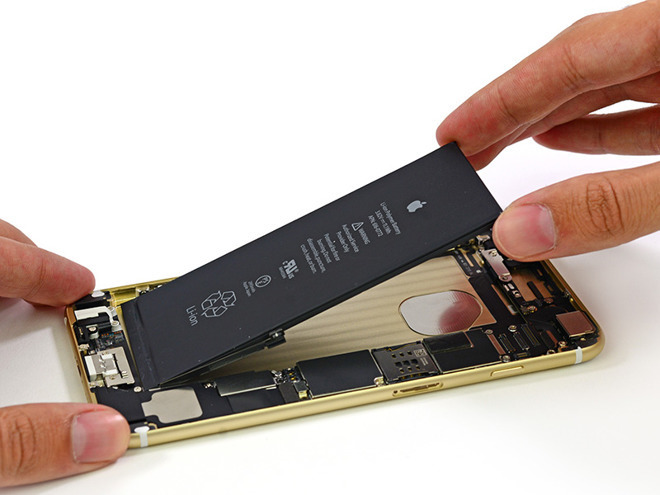



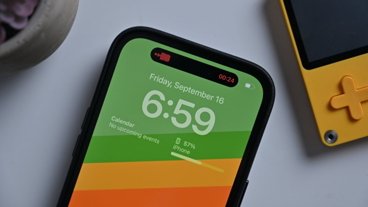



-m.jpg)





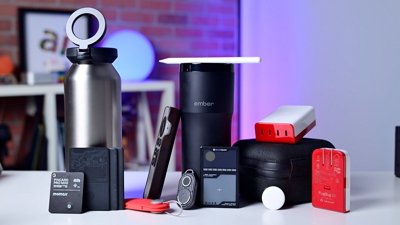
 Andrew O'Hara
Andrew O'Hara
 William Gallagher
William Gallagher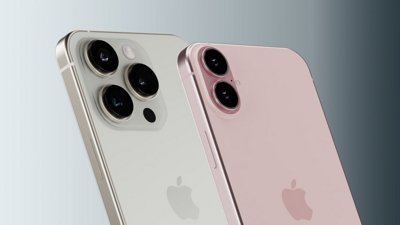
 Malcolm Owen
Malcolm Owen

 Christine McKee
Christine McKee
 Chip Loder
Chip Loder

 Marko Zivkovic
Marko Zivkovic

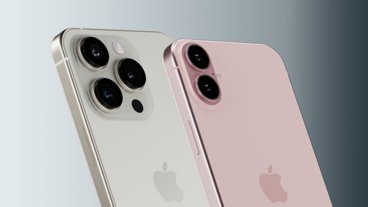


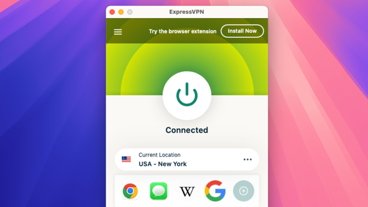



232 Comments
Apple confirms what I thought was the clear reason for the slowdown and the mechanism by which it was done — the Low Power Mode function being automatically applied.
Thank you, Apple, for stepping up with steep discounts for battery replacements.
I understand the reasoning behind the system slowdown for mostly worn out batteries... but thank you anyway for this "fix." My wife's iPhone 5s is only 2.5 years old and has major lag issues. Although this is outside of the program, I think I'll bring her phone in anyway for a Genius-look-see.
The software update will be a nice addition even for my iPhone 6 that only rarely has what appears to be battery issues (same 2.5 years old).
Just finished reading the letter, and the linked info about Lithium-Ion batteries and how things work, and I think Apple handled that beautifully.
I also think 99% of consumers won't even bother finishing the letter, much less read the information about batteries, because consumers these days are mostly dumb, short-sighted, short-attention-spanned, bafoons who only know now about "Apple being bad and being sued" as fed to them by mainstream media.
And I can GUARANTEE that mainstream media won't even mention a whisper of this explanation or battery tech background, as it won't jive with their pitchfork narrative against Apple, which means the BS stupidity against Apple will continue unabated.
Still don't even see this as a big issue at all but glad they've done something about it, the discounted battery replacements is a good gesture and they will now be more popular than ever.
And for those users who do not know or care about how their phones actually work (i.e. the vast majority of users), the software update will lead to some phones randomly shutting down without warning and yet another class-action lawsuit against Apple for "intentionally putting out a software update that degrades the iPhone's reliability." Fuc*ing lawyers.